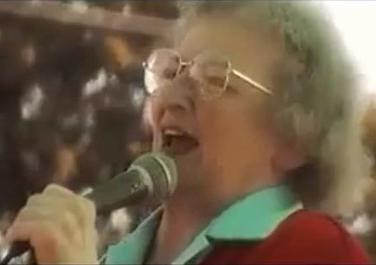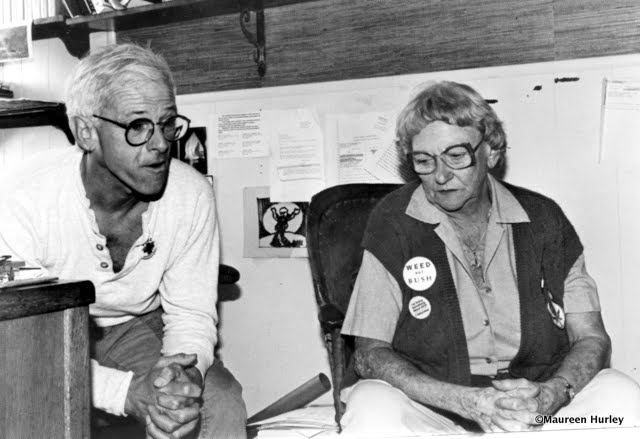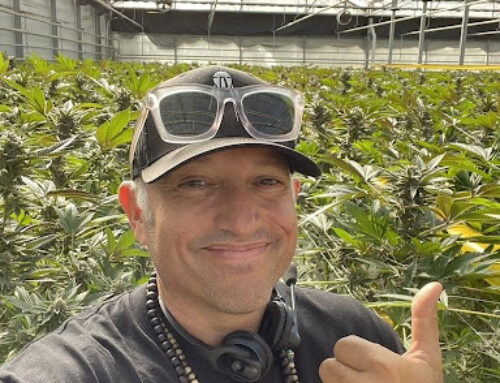Highly Capitalized Celebrates Women’s History Month With A Salute To The Legendary Brownie Mary
SAN FRANCISCO – Brownie Mary (born Mary Jane Rathbun December 22, 1922 – April 10, 1999) was an American rights activist specializing in cannabis reformation, who became a face of rationale and perspective amongst heavily criminalized cannabis. With her initiative and selfless nature, she inspired politicians and medical professionals to drop skepticism, and to instead value cannabis for its many positive qualities.
In the 1960s, homophobia and gay intolerance was exceptionally prevalent amongst a heavily Christian country, often fiercely ostracizing those who didn’t conform to the heteronormative society. More contemporary and cosmopolitan ideals existed in California, however, causing a migration of those seeking a safer life. Unfortunately as a by-product of this influx, and due to little knowledge and safety around sexual health, the migration led to the AIDS and HIV crisis in the 60s.
Rathburn was a volunteer for San Francisco General Hospital, who frequently felt helpless seeing those infected with STDs undergoing chronic pain. She earned her famous title as Brownie Mary by baking and distributing cannabis-infused brownies to the sick, providing comfort and a release from the perpetual suffering of patients- especially assisting those on chemotherapy. It was her actions that led to medicinal cannabis’ use to help combat wasting syndrome, just as William O’Shaughnessy used it to help with cholera.
“I make them for the worst of the patients. The ones on chemotherapy and the ones wasting away. I pick out the worst of the worst and turn them on.”
Her volunteering was forever viewed as a wonderful addition to society, and her initiative to help with new, unorthodox, but scientifically proven medical means was a great step in understanding cannabis and its use in illness. It led to formal medical trials, and was a huge leap that helped California legalize medicinal cannabis in 1991.
She worked with Dennis Peron (pictured with Rathbun above) and several others to create the Cannabis Buyers Club: shops and markets that openly sold cannabis on the street. While they were frequently raided, harassed and oppose by police, they continued to distribute cannabis to assist the community and to minimize the stigma around cannabis.
It wasn’t exclusively her volunteering and community work that established her fame, but was instead what she represented as an American white, older woman. Her endorsement was so well received as she contradicted all the stigma that followed cannabis.
See, It was established by whistleblower and Nixon’s former advisor that cannabis criminalization was not fairly imposed. By presenting cannabis’ use as unlawful and wrong, Nixon managed to vilify the demographics that opposed him.
The anti-war hippy, Latino, and Black communities in America presented a clear issue to him and his conservative republican nature, such as how the hippy cultures were very outspoken in their wishes and arguments to stop the Vietnam war. These groups were known by reputation to smoke cannabis, and as such Nixon was able to impose criminal stigma towards them:
“We knew we couldn’t make it illegal to be either against the war or black, but by getting the public to associate the hippies with marijuana and blacks with heroin, and then criminalizing both heavily, we could disrupt those communities. We could arrest their leaders, raid their homes, break up their meetings, and vilify them night after night on the evening news. Did we know we were lying about the drugs? Of course we did.”
-John Ehrlichman
These understanding made her grandmotherly appearance and disposition so significant. As an older white lady, she represented a total contradiction of the stigma towards cannabis- the very stigma that helped criminalize it so strongly.
“It’s all about politics, and it’s stupid”
It’s this same appearance that made her arrests so significant, too. She was arrested multiple times, but never imprisoned. The court recognized that her actions were not for greed, profit, or harm, but instead only to assist her community.
In her earlier life she was an activist for legalization of abortion, and the rights for working classes to unionize. It wasn’t until 1981 (at 57 years old) when police arrested her for the first time, finding 18 pounds of cannabis during a house raid.
While others would frequently be punished in a far more harsh and life-impacting manner, she was given three years probation and 500 hours of community service that she served loyally in LGBT positive businesses.
Her second arrest was one year later, with the very same officer taking her to city jail after finding her with over 50 cannabis brownies. She was charged with possession and violation of probation. however due to public outcry and her generous, nonviolent nature, all the charges were dropped.
Many others could have faced several years in jail for such possession or repeat offense, but her unbridled honesty and integrity in her work helped display how cannabis simply isn’t the evil, dangerous substance that the law constantly claimed it to be.
Rathbun continued to campaign and protest her entire life, representing the good of cannabis and its true innocence that lies behind politically imposed hate. It’s because of her work, initiative, and endorsement that many subverted the knee-jerk stigma that previously existed. It is heroes like her that legalized medicinal cannabis, which will continue to pave the way to total legalization.






































